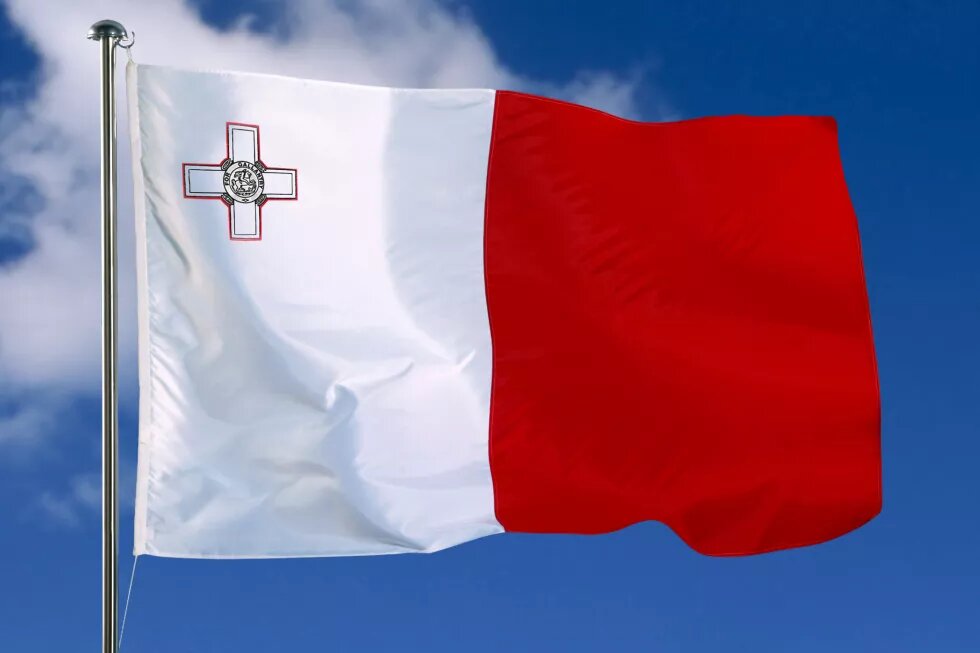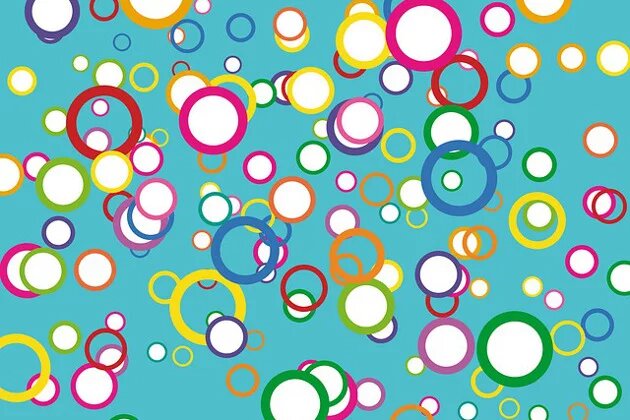

Gender-political situation in Malta
Legal situation:
Protagonists:
Academia
Brief description and evaluation
Malta is the smallest EU member state. Like Lithuania, the country’s president is a woman – Marie Lousie Coleiro. The political participation of women is somewhat low, especially at national level, as is also referenced in the latest (2014) paper of the Office for Democratic Institutions and Human Rights.
At 35%, the rate of employment among women in Malta is the lowest in the entire EU. At the same time, however, the pay gap between women and men is the lowest in Europe and currently stands at around 6%.
Gender actors above all include women’s organizations as well as initiatives within the political parties and trade unions. There are two national umbrella organizations. The main focus of the National Council of Women of Malta is not just women’s rights but also women’s duties and obligations. This could be an indication of the very traditional division of roles and labour that continues to prevail in society and families (the Catholic Church has significant influence).
Since April 2014, same-sex marriages can be conducted at registry offices, which entail the same rights and duties as marriages between women and men, including the adoption rights.
Due to the low levels of participation of women on the labour market – despite having the same qualifications, women usually end their careers when their first child is born – the state has been under pressure for years to act on the Lisbon objectives, which may also explain why the centre of attention of the country’s equality policy has been on women’s labour market participation, education/schools and gender roles as well as the media.
Much like Cyprus, a high degree of the focus otherwise concentrates on issues relating to the family and violence against women/domestic violence.
Legal situation
Gender equality legislation
“The main laws are the Employment and Industrial Relations Act 2002 (EIRA) and the Equality for Men and Women Act 2003 (EMWA). The EIRA’s definition section (Section 2) did not define direct or indirect discrimination in terms of the Directive, but spoke of ‘discriminatory treatment’. Then, both direct and indirect discrimination were prohibited by EMWA, the later piece of legislation, and although there was no definition of indirect discrimination as such this law included under ‘discrimination’ ‘any treatment (…) which disadvantages a substantially higher proportion of members of one sex.”
-
Source: Gender Equality Law in 30 European Countries, p. 107 (PDF, 193 pages, 3.15 MB)
Anti-discrimination law
National Commission for the Promotion of Equality – NCPE (English)
The Commission is an autonomous institution within the Ministry for Social Dialogue, Consumer Affairs and Civil Liberties. The responsible minister is Dr. Helena Dalli. By virtue of Chapter 456 of the Laws of Malta – Equality for Men and Women Act.
NCPE safeguards equality on the grounds of gender and family responsibilities, sexual orientation, age, religion or belief, racial or ethnic origin, and gender identity in employment, education as well as in banks and financial institutions. In particular, according to this legislation, the functions of NCPE entail:
- to identify, establish and update all policies directly or indirectly related to issues of equality;
- to identify the needs of persons who are disadvantaged by reasons of their sex and to take such steps within its power and to propose appropriate measures in order to cater for such needs in the widest manner possible;
- to monitor the implementation of national policies with respect to the promotion of equality;
- to liaise between, and ensure the necessary coordination between, government departments and other agencies in the implementation of measures, services or initiatives proposed by Government or the Commission from time to time;
- to keep direct and continuous contact with local and foreign bodies working in the field of equality issues, and with other groups, agencies or individuals as the need arises;
- to work towards the elimination of discrimination between men and women;
- to carry out general investigations with a view to determine whether the provisions of this Act are being complied with;
- to investigate complaints of a more particular or individual character to determine whether the provisions of this Act are being contravened with respect to the complainant and, where deemed appropriate, to mediate with regard to such complaints;
- to inquire into and advise or make determinations on any matter relating to equality between men and women as may be referred to it by the Minister;
- to provide assistance, where and as appropriate, to persons suffering from discrimination in enforcing their rights under this Act;
- to keep under review the working of this Act, and where deemed required, at the request of the Minister or otherwise, submit proposals for its amendment or substitution;
- to perform such other function as may be assigned by this or any other Act or such other functions as may be assigned by the Minister.
A further area of focus of the Commission is equal opportunities in terms of race/ethnic origin. Unequal treatment can be reported directly to the Commission. Numerous publications and studies can be found on the Commission’s homepage. One such example is the study on domestic violence from a gender perspective or the current “Gender-Balance in Decision Making” project.
Contact:
Gattard House
National Road
Blata l-Bajda HMR 9010
Telephone: (+356) 2590 3850
Fax: (+356) 2590 3851
E-mail: equality@gov.mt
Laws on quota, above all in the political and economic fields
A question to arise in April 2010 was that of quota to assist women in obtaining seats in Parliament. Views on this remain divided, also among incumbent female Members of Parliament themselves. The view that women do not require the assistance of positive action appears to be losing ground. However, the then Prime Minister, Dr. Lawrence Gonzi, has declared that he is not a believer in the need for positive action in this area. It therefore appears that there is no sufficient political will to make any change in this respect for the foreseeable future. In the meantime, the Government has finally nominated a woman as one of the three nominees for the European Court of Human Rights in Strasbourg (Council of Europe). In the years 2009 and 2010, the Government’s list was returned because it did not feature any women among the nominees.
[Source: Peter G. Xuereb, p. 105 in European Gender Equality Law Review 2010-1 (PDF, 145 pages, 875 KB)]
The current parliament includes a mere nine women parliamentarians (of a total 70 members).
Other laws and legislative regulations
-
Law on employees and those employed in industry
-
Part-time employment regulations
-
Regulations on maternity protection
-
Regulations on parental leave
-
Regulations for the return of women to employment
Current political discourse
There is not yet any right of divorce in Malta. Civil law and marriage regulations provide only for the option of separation and an annulment of the marriage, but without legal security. On 28 May 2011 a referendum on the legalisation of divorce took place.
The referendum read “Do you agree with the introduction of the choice of divorce in the case of a married couple who has been separated or has been living apart for at least four (4) years, and where there is no reasonable hope for reconciliation between the spouses, whilst at the same time ensuring that adequate maintenance is guaranteed and the welfare of the children is safeguarded?”
53.2% pronounced themselves in favour of a right of divorce and 46.8% against such a right (Electoral Commission Malta, Referenda, English).
What will the effects of the referendum be?
Unfortunately the referendum is only morally and not legally binding. Nonetheless, several Maltese members of parliament said in interviews that they would accept the result. A few, however, said there would be no changes in spite of the result. A legislative process in the Maltese parliament would be needed for the introduction of divorce in Malta.
(Source: Franziska Brantner, Member of the European Parliament, feminist social policy)
In 2010 the members of the EP decided against a proposal by Belgium EU parliamentarians to liberalise abortion legislation. They were backed by catholic Maltese groups.
Protagonists
NGOs: political parties, civil society organisations
Malta Confederation of Women’s Organisations (MCWO, English)
A large women’s organisation in Malta. Their website features current articles and interviews and numerous links.
National Council of Women of Malta (English)
Founded in 1964, this NGO has individual and institutional members. They act in the interests of improving the situation of women and the conditions of society. Each year, the NCWM adopts a number of resolutions at its general assembly that, in part, also reflect the debates of the time.
The Foundation for Women Entrepreneurs (English)
An organisation to promote equal opportunities, consciousness building, training and research for female entrepreneurship and other questions of gender in Malta, Europe and the Mediterranean.
Malta Association of Women in Business (English)
Dedicated to networking and the promotion of female business owners.
Gender Equality Committee at the UHM (Union Haddiema Maghqudin/Maltese union, in English)
The Gender Equality Committee was set up in 1999. They work for women in the workplace and in unions to have the same opportunities and treatment as their male counterparts. The Gender Equality Committee is a member of the Malta Confederation of Women's Organisations (MCWO), which in turn is affiliated to the European Women's Lobby Group. The committee meets regularly and is made up of women workers from all sectors of the workforce.
GWU (General Workers Union, English)
Malta Gay Rights Movement (MGRM)
MGRM was set up in June of 2001. It is run by a committee of volunteers that is elected annually at a statutory annual general meeting.
Mission (as approved at AGM, 22nd February 2010): MGRM strives to achieve full equality for LGBT people in Maltese society; a society that enables people to live openly and fully without fear of discrimination based on one’s sexual orientation, gender identity and gender expression.
For the 2013 – 2018 legislative period, the organization has resolved to undertake a detailed equality plan for lesbian, gay, bisexual and transgender people. This can also be found on their homepage.
Government, ministries
Political competence for gender equality (www.equality.gov.mt, in English) lies with the Ministry for Social Dialogue, Consumer Affairs and Civil Liberties. The website (National Commission for the Promotion of Equality) is hosted on the government websites. Entering ‘gender equality’ as a search term provides laws and competencies as results
Academia
Universities
Gender Studies has been offered at the university (University of Malta) since 2013
The Department of Gender Studies was sanctioned by Council in November 2013. Its founding members are Dr Marceline Naudi (Head), Dr JosAnn Cutajar and Dr Brenda Murphy.
The Department has a clearly defined theoretical position – feminisms, masculinities, Queer Studies, and Post-colonialism – and gender is viewed through these lenses. At its core, intersectionality is paramount and this is played out through engagement across all grounds:
"sex, gender, race, colour, language, religion, political or other opinion, national or social origin, association with a national minority, property, birth, sexual orientation, gender identity, age, state of health, disability, marital status, migrant or refugee status, or other status". (Council of Europe – Istanbul Convention)
The university also has a Gender Issues Committee (English). The website features an up-to-date section with a list of gender-related dissertations.
Availability of sources
The available sources are not very extensive, many organisations and institutions do not have a website. An advantage is that nearly all information is also available in English. The website of the National Commission for the Promotion of Equality is quite extensive and offers texts for download.
Literature
Bestler, Anita 2004: Der prägende Einfluss des „Kodex von Ehre und Schande“: politische Partizipation von Frauen in Malta. In: Hoecker, Beate/ Fuchs, Gesine (ed.): Handbuch Politische Partizipation von Frauen in Europa. Volume II: Die Beitrittsstaaten. Wiesbaden: VS Verlag, pp. 223-243
European Commission, Directorate-General Justice, Unit D2 “Gender Equality” 2012: „The current situation of gender equality in Malta – Country Profile 2012“
Frances Camilleri-Cassar 2011: Gender Equality in Maltese Social Policy. Luqa: Miller Distributor`s Ltd., ISBN: 99932-672-3-6
Mary Darmanin 2006: Gender Equality In Malta: A Southern European Perspective (PDF, 19 pages, 118 KB, in English)
-
Wikigender can be helpful as a first introduction to Malta and gender: Gender Equality in Malta (English)
-
Sophie Lauwers also offers a good overview: Lauwers, Sophie (2008): Context Study Malta, QUING Project, Vienna: Institute for Human Sciences (IWM), available at http://www.quing.eu/files/results/cs_malta.pdf (69 pages, 479 KB)
- Gender equality and women's rights / empowerment in Malta on the webiste of the European Commission: http://ec.europa.eu/europeaid/gender-equality-and-womens-rights-empowerment-maltaen (2013)
This study was conducted by Tanja Berger und Pamela Dorsch and comissioned by the Gunda Werner Institute of the Heinrich Böll Foundation in 2010. Last updated late 2014/early 2015.
All images, except marked otherwise Public Domain CC0

